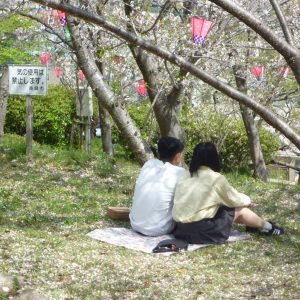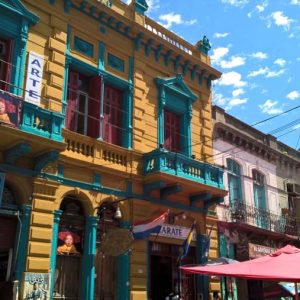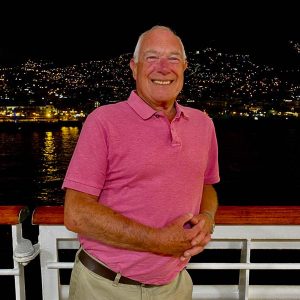Today is about names. Names encountered when travelling and names that have simply turned up by chance. Amber started it all. Do you know anyone called Amber? I didn't, until learning a few days ago that the lass at the station bookstall from whom I collect my newspaper each morning bears that unusual name.
It suits her, though I can't help recalling Kathleen Winsor's novel "Forever Amber". Banned as pornographic when it appeared in 1944, it had a significant influence on my young life, but we won't go into that now.
Anyway, I happened to mention to young Amber that I was visiting a friend who lives in Walton-on-the-Naze, and she refused to believe there was such a place. When I told her that I would be changing trains at Thorpe-le-Soken she became convinced I was teasing her. But you and I both know that those two places exist – and are far from being the strangest of English place names.
For starters, there's Flyford Flavell and Gussage All Saints, not to mention Wyre Piddle and Shellow Bowells, Somersal Herbert and Sheepy Magna. You can't look at a single page of a U.K. motoring atlas without stumbling over similar examples. And I confess I have often turned off a planned route so as to see for myself a place whose name on a signpost had caught my imagination. Pease Pottage was a bitter disappointment.
One of the most unusual is Westward Ho!, near Bideford in Devon. Named after Charles Kingsley's novel, it is the only place in Britain to have an exclamation mark. (However, they've gone one better in Quebec, with the town of – wait for it – Saint-Louis-du-Ha! Ha!)
As far as I know there isn't anywhere called Heaven (though the USA has four towns called Paradise) but I used regularly to drive through Purgatorio, a small community in Southern Portugal, and have been to Hell – a railway junction a few miles east of Trondheim in Norway.
My travels have also taken me to the back of Beyond, and, when I explain, you may discover you have been there, too, without realising it. The city of Dubrovnik is where it's at.
The wide and time-worn flagstones of the Placa cuts through the old city. It used to be a canal, and the folk who lived in the posh houses on the seaward side referred to the poorer neighbourhood on the opposite bank as "beyond". So, if you have ventured up the stepped alleys to shops and restaurants tucked away in narrow side streets, you have gone to the back of Beyond.
Dubrovnik used to be called Ragusa and gave its name to a type of large merchant ship known as an Argosy. All sorts of names have sprung from all sorts of places. A style of neckwear traditional in Croatia is therefore called a cravat. When the craftsmen of Pistoia, in Tuscany, turned their attention from making daggers to constructing the newly-invented little guns they were inevitably called Pistols. And you knew, of course, that Mayonnaise is from Mahon, capital of Minorca.
Place names are one thing. People names are another. The folk who run hotels and restaurants and cruise ships are very helpful when it comes to the names of their employees, giving them little badges, so you know who's looking after you.
On one cruise ship our wine waiter – a young and pleasant Filipino – was named Jesus. We made jokes about him turning bottled water into the finest vintages of whites or reds, and he laughed politely. Towards the end of the trip, when we had got to know him better, he told us that for as long as he could remember people had made that joke, and he had learned to laugh as if he had never heard it before. It helped when it came to the tips.
I sometimes invent names just for the fun of it – the owner of the Dutch car hire agency, Hertz van Rental, or the Indian cloakroom attendant, Mahatma Jakit. But I swear on a stack of bibles that, in Xian, China, I was served by a bartender in, I think, the Golden Flower hotel, whose name tag read "Sai Wen".
Florence Nightingale was so named because she was born in that Italian city. Until she came along, I believe no English girl was named Florence. Her elder (by one year) sister was born in Naples, and christened Parthenope – the name of the original Greek settlement. She was usually called "Parthy" – which is a darned sight better than "Nappy". But not as good as Florence.
However, of all the people and place name stories the one that combines both concerns an Irish Anglican clergyman named Patrick Brunty and Lord Nelson.
Brunty, so the story goes, was a great admirer of the gallant sailor, and noted that one of his titles was Duke of Bronte, the name of a place in Sicily, a little to the west of Mount Etna. (It was his favourite title, and he always signed his letters "Nelson and Bronte".)
So Patrick decided to change his surname in honour of his hero, and though you may never have heard of him, his three daughters, Charlotte, Emily and Anne will, I am sure, be familiar.











